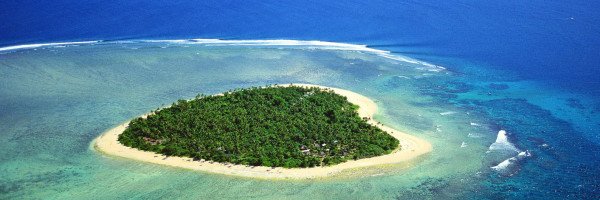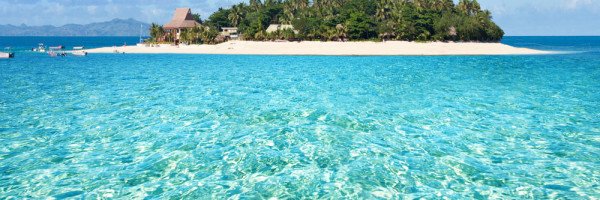The Effects of Rising Sea Levels on Coastal Ecosystems
Fiji’s coastal ecosystems are among the most vulnerable to the impacts of climate change, particularly rising sea levels. Over the past few decades, sea levels have been steadily increasing due to the melting of polar ice caps and thermal expansion of seawater. This phenomenon poses a significant threat to Fiji’s beaches, coral reefs, and mangrove forests, which serve as critical habitats for various marine species.
The encroachment of saltwater into freshwater systems can disrupt the balance of ecosystems, leading to a decline in biodiversity. Mangroves, which act as natural barriers against storm surges and coastal erosion, are particularly at risk. Eco-tourists should be aware of these changes and choose to support sustainable tourism initiatives that prioritize the protection of these vital ecosystems. For more information on Fiji’s unique coastal landscapes, visit Fiji Islands.
Coral Bleaching and Its Impact on Marine Biodiversity
Coral reefs are often referred to as the rainforests of the sea due to their immense biodiversity. However, the phenomenon of coral bleaching, exacerbated by rising ocean temperatures and acidification, poses a significant threat to these ecosystems. The Great Barrier Reef has already experienced extensive bleaching events, and similar patterns are observed in Fiji’s coral reefs.
Coral bleaching occurs when corals expel the symbiotic algae that provide them with nutrients and color, leading to a stark white appearance. If water temperatures do not return to normal, bleached corals can die, leading to a collapse of the entire reef ecosystem. Eco-tourists should seek out operators that engage in reef conservation efforts and educate visitors on marine protection. Eco-friendly practices, such as minimizing sunscreen impact, can also help preserve these fragile ecosystems. For insights into eco-friendly travel in Fiji, check out Fiji Islands.
Effects on Terrestrial Biodiversity: Flora and Fauna at Risk
Fiji is home to a rich diversity of flora and fauna, including many endemic species. As climate change alters rainfall patterns and temperature ranges, these species face increased threats to their survival. Deforestation and habitat loss further exacerbate these issues, leading to the decline of unique ecosystems such as tropical rainforests and highland forests.
Eco-tourists visiting Fiji should be aware of the importance of these ecosystems and the role they play in global biodiversity. Supporting eco-tourism initiatives that focus on conservation can help protect these natural resources. For instance, visitors can participate in guided nature walks or reforestation projects, contributing to the preservation of Fiji’s unique biodiversity. Learn more about Fiji’s ecosystems and eco-tourism options at Fiji Islands.
Climate Change and Its Impact on Local Communities
The effects of climate change extend beyond the environment, significantly impacting local communities in Fiji. Many Fijians rely on fishing and agriculture for their livelihoods, both of which are threatened by climate change. Changes in weather patterns can lead to reduced crop yields and fish stocks, exacerbating food insecurity.
Eco-tourists have a role to play in supporting local communities by choosing to engage with sustainable tourism practices. This includes staying in locally-owned accommodations, participating in community-based tourism initiatives, and purchasing handicrafts directly from artisans. By doing so, tourists can help ensure that the economic benefits of tourism are shared with local populations, fostering resilience against climate change. To explore sustainable travel options in Fiji, visit Fiji Islands.
The Role of Eco-Tourism in Conservation Efforts
Eco-tourism is increasingly recognized as a powerful tool for conservation, particularly in biodiverse regions like Fiji. By promoting awareness and generating funds for conservation projects, eco-tourism can play a pivotal role in protecting delicate ecosystems. Tourists who engage in eco-friendly practices help to minimize their environmental footprint while supporting initiatives that promote sustainability.
Visitors can participate in guided eco-tours that educate them on local flora and fauna, marine conservation, and sustainable fishing practices. Additionally, many eco-tourism operators contribute a portion of their profits to local conservation projects. By choosing eco-tourism, visitors not only enjoy the natural beauty of Fiji but also contribute to its preservation. Learn more about eco-tourism initiatives in Fiji at Fiji Islands.
Practical Tips for Eco-Tourists Visiting Fiji
For eco-tourists planning a visit to Fiji, there are several practical tips to ensure an environmentally responsible experience. First, consider opting for accommodations that prioritize sustainability, such as eco-lodges that utilize renewable energy sources and practice water conservation.
Secondly, engage in activities that promote environmental awareness, such as participating in beach clean-up efforts or wildlife conservation programs. Additionally, being mindful of your waste and minimizing single-use plastics can significantly reduce your environmental impact. Eco-tourists should also educate themselves on local customs and practices, which can enhance their understanding of the delicate balance between tourism and conservation. For more information on sustainable travel options in Fiji, check out Fiji Islands.
The Future of Fiji’s Ecosystems: A Call to Action for Eco-Tourists
The future of Fiji’s ecosystems is uncertain, but eco-tourists have the power to influence positive change through their travel choices. By choosing to support eco-friendly initiatives, tourists can help protect fragile environments and contribute to the resilience of local communities against climate change.
It is essential for travelers to remain informed about the challenges facing Fiji’s ecosystems and to advocate for sustainable practices within the tourism industry. By spreading awareness and encouraging responsible tourism, visitors can play a vital role in ensuring the preservation of Fiji’s natural beauty for future generations. To discover how you can make a difference while visiting Fiji, explore the resources available at Fiji Islands.
FAQs
What are the main effects of climate change on Fiji’s ecosystems?
Climate change has led to rising sea levels, increased ocean temperatures, and more frequent extreme weather events in Fiji. These changes threaten coral reefs, disrupt marine life, and negatively impact terrestrial ecosystems, which are vital for biodiversity and eco-tourism activities.
How does climate change affect Fiji’s coral reefs?
Coral reefs in Fiji are highly sensitive to temperature changes and ocean acidification caused by climate change. Increased sea temperatures can lead to coral bleaching, while acidification affects the corals’ ability to build their structures, ultimately impacting marine biodiversity and eco-tourism opportunities centered around snorkeling and diving.
What can eco-tourists do to minimize their impact on Fiji’s environment?
Eco-tourists can minimize their impact by choosing sustainable tour operators, avoiding single-use plastics, respecting wildlife, and following local guidelines for environmental conservation. Engaging in responsible eco-tourism practices helps protect Fiji’s delicate ecosystems while promoting sustainable travel.
Are there any eco-tourism initiatives in Fiji aimed at combating climate change?
Yes, several eco-tourism initiatives in Fiji focus on sustainability and conservation. These programs often involve reforestation projects, marine protected areas, and community-based tourism that encourages visitors to engage with local cultures while promoting environmental stewardship and resilience against climate change.
What wildlife can eco-tourists expect to see in Fiji despite climate change?
Despite the challenges posed by climate change, Fiji is home to a diverse array of wildlife, including unique bird species, marine life, and lush rainforests. Eco-tourists can still enjoy opportunities for wildlife observation, particularly in protected areas where conservation efforts are ongoing.
How is the local community in Fiji responding to climate change and eco-tourism?
The local communities in Fiji are increasingly involved in eco-tourism as a means of adapting to climate change. Many are implementing sustainable practices, participating in conservation programs, and educating visitors about the importance of preserving their natural environment, which enhances the eco-tourism experience.
What should eco-tourists know about the best times to visit Fiji in relation to climate change?
While Fiji can be visited year-round, eco-tourists should consider visiting during the dry season (May to October) to enjoy more stable weather conditions. Understanding seasonal variations and their relation to climate change can help travelers plan their trips effectively while minimizing their impact on local ecosystems.
References
- Fiji Islands Official Tourism Website – A comprehensive resource for eco-tourists, providing insights into Fiji’s natural attractions, conservation efforts, and the effects of climate change on local ecosystems.
- World Wildlife Fund – Fiji – This page discusses the unique biodiversity of Fiji and how climate change poses threats to its ecosystems, emphasizing the need for sustainable tourism practices.
- Fiji Climate Change Portal – An official government resource that outlines Fiji’s climate change policies, impacts on ecosystems, and adaptation strategies relevant to tourists.
- The Nature Conservancy – Fiji – This source highlights conservation projects in Fiji, detailing how climate change affects marine and terrestrial ecosystems and what eco-tourists can do to help.
- United Nations Environment Programme – Fiji and Climate Change – A report that explores the implications of climate change in Fiji, focusing on environmental challenges and the importance of eco-tourism in supporting sustainability efforts.







